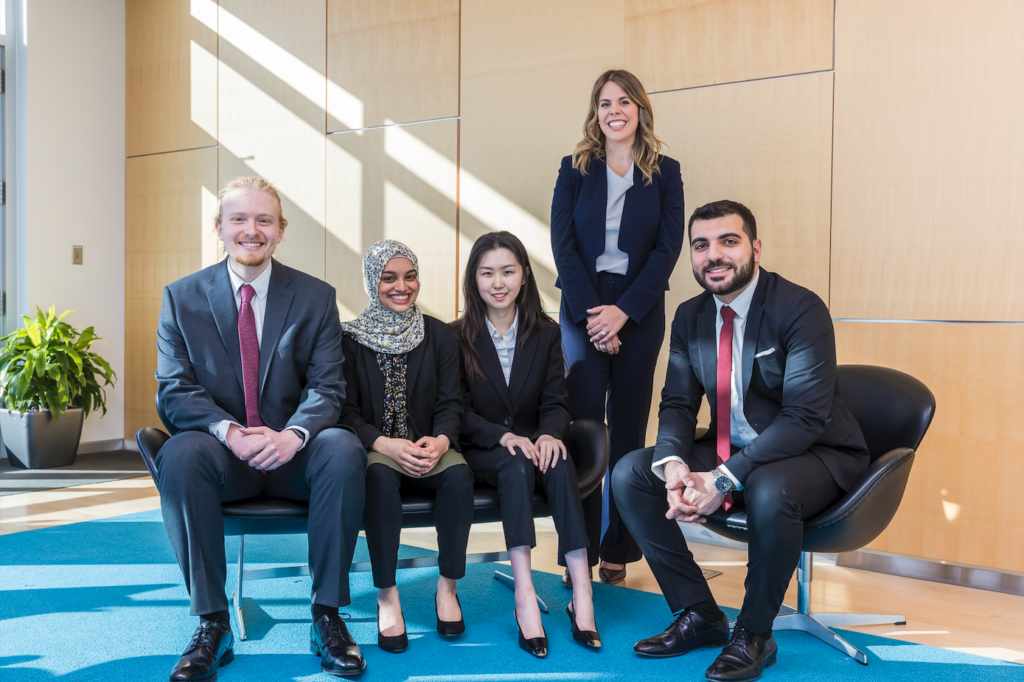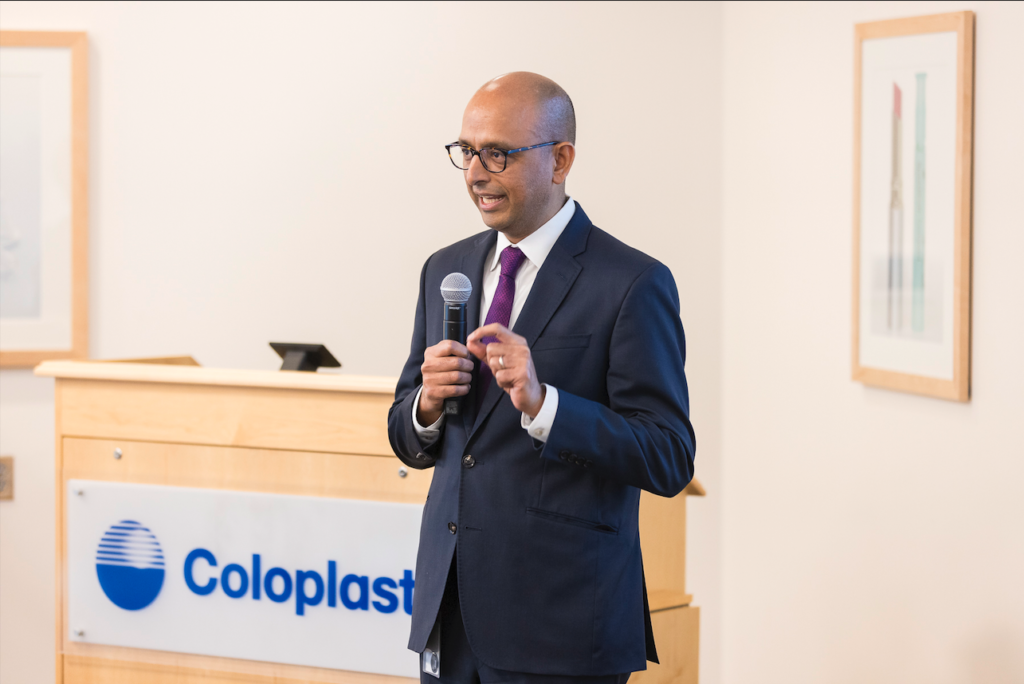
By Amy Gage
Scott Burwell’s team came up with a marketing strategy that had never crossed his mind. Sean O’Neil’s group got direct input from his customers at a time when he had no staff support to gather such crucial data. Tristen Hazlett gained a “unique perspective” and a proposed broadening of his company’s market that he had not previously considered.
These three executives, all founders of Medical Alley startup companies, recently took part in a program called Innovation Scholars, which pairs entrepreneurial companies with multidisciplinary teams of Minnesota private college students to advance a product or innovation.
“A short-term internship is what it felt like, having a group come in and support our team,” said Hazlett, founder and CEO of Hinckley Medical, a Lakeville-based company that has developed a patient scale for ambulance gurneys. “Small startups don’t often get that opportunity.”
“Working at the intersection of science, healthcare and entrepreneurship” is the program’s mantra and its goal, helping to move innovation to application through the processes of technology transfer.
DiaspoCare, MarPam Pharma, Neurotype and Newronika were the other Medical Alley companies selected to participate in Innovation Scholars this year.
College to company
Early-stage Medical Alley companies were assigned this year to teams of undergraduate students from five Minnesota private colleges and universities: Macalester College, the College of Saint Benedict and Saint John’s University, St. Catherine University, St. Olaf College and the University of St. Thomas. Each four-person college team had a team leader who is earning an MBA from Augsburg University or St. Thomas or a Master of Arts in Organizational Leadership from St. Catherine.
Companies designed their own projects — a product or market challenge for the students to analyze and then make recommendations. After months of focused research, alongside the graduate student team leader and campus mentors, the student teams supplied data, marketing proposals and strategic analysis in extensive written reports that, in one case, ran 106 pages.
Hinckley Medical plans to use its student report in two “key ways,” according to cofounder and vice president of engineering Mike Elsbernd: as part of a playbook for new hires and to convince prospective investors of “the impact of our solution,” he explained.
Research completed and proposed solutions delivered, this year’s Innovation Scholars teams then presented to company executives at a day-long event hosted by Coloplast in Minneapolis on February 28.

“Medical Alley is the global epicenter of healthcare and medical education,” said Manu Varma, Coloplast SVP and president of Coloplast–North America in his opening remarks. But focusing on innovation has become challenging for entrepreneurs when they’re caught between the pandemic’s after-effects and persistent inflation, Varma said.
By all accounts, the student researchers moved companies’ innovative ideas forward. In fact, Varma wants Coloplast to participate next year. “I was surprised by how much the students could do on their own,” said O’Neil of DiaspoCare. “Our meetings were two-way conversations and very productive. We discovered as much about ourselves during those education sessions.”
Looking ahead to 2024
In its original incarnation, Innovation Scholars served only Mayo Clinic, whose project partners this year were Augsburg University, Bethel University, Carleton College, Concordia College (Moorhead), Gustavus Adolphus College and Saint Mary’s University of Minnesota.
Now, with the success of Medical Alley’s emerging-companies cohort this year, the program will open to mid-size Medical Alley companies for 2023–24.
Companies will be invited to apply this coming summer, with college teams selected from among Minnesota Private College Council members in September and team orientation in October. Project definition and teamwork, which requires some engagement with company executives, will occur from fall 2023 through February 2024.
Criteria for company selection include:
- Quality of prospective projects,
- Willingness to make a modest financial contribution and
- Availability of company contacts for the college team.
Innovation Scholars’ supporters include Medtronic Foundation, Mayo Clinic, the Richard M. Schulze Family Foundation, the Fred C. and Katherine B. Andersen Foundation, Offutt Family Foundation, the Minnesota Private College Council and Fund, and Innovation Scholars founder and retired Medtronic executive John Meslow.
For more information, contact Innovation Scholars Director Rebecca Hawthorne, Ph.D., at [email protected].
